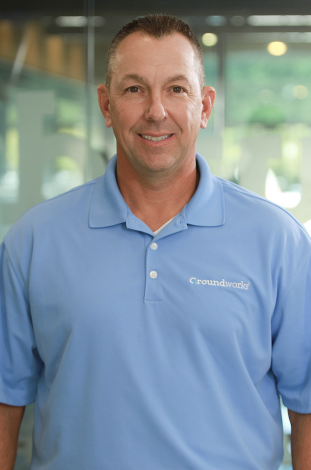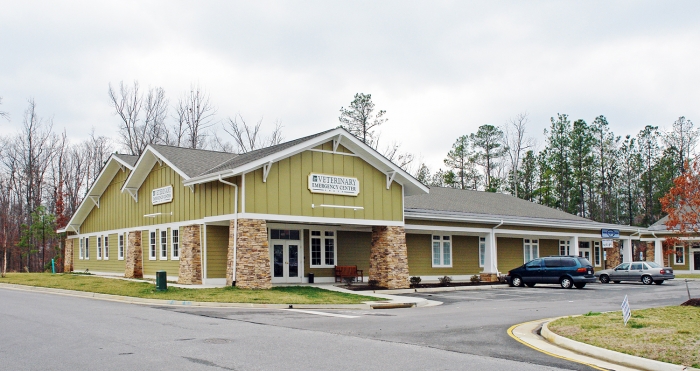The October issue of Virginia Business magazine has an article relating the challenges faced getting broadband into rural areas. As a professional in this field, I am concerned by the “end goal.” Sadly, the conclusion has got to be: too little — too late and not enough coordination. When the Telecom Czar states a goal of reaching unserved areas (10 Mbps up/1 Mbps down speed) within seven to 10 years, we need to understand that this will put our rural communities even further behind their urban and suburban counterparts than they are today! Right now high-speed broadband connectivity is both a race and an essential service. How will Virginia losing this race to other states serve the commonwealth? The resulting loss of opportunities and diminished wellbeing for our rural citizens due to the lack of high-speed internet in the near future has been decidedly documented. We need to be focused on ensuring that Virginia does not lose this race to provide essential broadband connectivity.
Three states provide road maps from their experiences:
● Minnesota: The state of Minnesota has set a 2022 state broadband goal of 25 Mb/3 Mb and a 2026 Minnesota broadband goal of 100 Mbps/20 Mbps. To this end, it initiated its Border to Border Broadband deployment effort under the Department of Economic Development. Most importantly, it has approved $24 million in funding for deployment efforts in both unserved and underserved areas.
● California: In 2010 California enacted legislation to promote broadband deployment in unserved and underserved areas of the state, establishing broadband access goals at 98 percent and broadband adoption to 90 percent by 2023. California Broadband Coalition (CBS) identifies state resources, encourages public and private partnerships. CBS recommends strategic policy and legislation to establish the right structure for providing world-class, high-speed internet access throughout the state of California.
● New York: In 2015, Gov. Andrew M. Cuomo established the $500 million New NY Broadband Program (“the Program”) the nation’s largest and most ambitious state investment in broadband expansion. The Program provides state grant funding through an innovative “reverse auction” method to support projects that deliver high-speed internet access to unserved and underserved areas of New York State at speeds of 100 Megabits-per-second (Mbps) in most areas, and 25 Mbps in the most remote areas.
Rural communities want and need access to high-speed broadband if they are to maintain their way of life and remain part of the increasingly connected global economy. In a filing before the FCC in July 2016 concerning the CAF II auction, the Fiber Broadband Association (formerly the FTTH Council) presented clear and compelling evidence of the desire and need for rural communities to be brought up to the throughput standards currently enjoyed by their suburban and urban peers. Using survey data from RVA LLC, the association found:
∙ Consumers residing in rural areas want access to the same caliber of broadband services that is available in urban areas. The survey found that rural consumers typically spend nearly as much time online on a daily basis as consumers residing in suburban, urban and dense urban areas. Moreover, the majority of consumers surveyed in rural areas indicated that broadband service is “very important” to their communities.
∙ Consumer preference for high-performance broadband services is increasing and will continue to increase due to two primary factors: (1) increasing demand for online video applications; and (2) an increasing number of devices being used simultaneously. Of the consumers surveyed, 83.3 percent indicated that they typically have between two and four devices running online video applications at the same time. These applications include streaming online video and two-way video chat applications such as Facetime and Skype.

Reviewing this chart demonstrates that a household with four users will require a minimum bandwidth speed of 50.44 Mbps today, or a 100/20 tier of service, in order to remain uncompromised. Clearly 10/1 in 7 to 10 years is not going to satisfy!
So, what can Virginia do? Clearly the announcement of a single point of contact to coordinate and manage all broadband deployment, if indeed this is Mr. Feinman’s mission, is a good first step. It is apparent from all the programs mentioned in the article — VATI, the Tobacco Commission, the FCC and the soon to be released $600 million in additional funding from the Rural Utilities System, that we can amass a funding pot similar to those from other states.
It is critical to coordinate and streamline all sources of financial and technical assistance for individual jurisdictions and companies. We cannot continue to have overlapping and various agencies within the state, all with differing requirements, try to tackle the challenge of rural broadband. It must become a coordinated and focused effort if we are to succeed.
The California Broadband Coalition laid out the following tasks which serves as a guide:
● Ensuring communication among state agencies regarding California’s participation in proceedings related to the National Broadband Plan released by the Federal Communications Commission.
● Ensuring that state agencies share all relevant information in order to maximize California’s opportunities for federal and private funding for broadband deployment and adoption.
● Ensuring that all relevant state agencies are made aware of actions necessary to fully implement recommendations in the 2008 Broadband Task Force Report.
● Identifying opportunities for state agencies and state broadband networks to share facilities, rights-of-way or other resources related to broadband deployment and adoption.
We need to understand that there is no single solution for any rural community and that each service area, including areas within given counties, will require different solutions. While many can be found in public private partnerships, some may require communities to underwrite their own solutions, based on payback periods which would never attract private investment. But the state government has a strong coordinating role to play here, in offering information and resources about all such solutions including access to various state funding sources, the presence of state fiber or rights of way and creation of accurate deployment maps.
This is not an easy challenge but one that must be undertaken, as other states have done, with resources for its success contributed and strong administrative support for its mission. Understand that not taking action will forever condemn our rural communities to being digital backwaters — without access to the same level of healthcare, education and commerce as their nonrural counterparts. We simply cannot let this happen.
Heather Burnett Gold is the CEO of HBG Strategies, LLC, a telecommunications consulting firm. She was the former President/CEO of the Fiber Broadband Association, served on the Virginia Broadband Roundtable in 2007 and served a term on the Virginia Broadband Advisory Council.



 Virginia Beach-based foundation repair company Groundworks has appointed a former executive of Terminix and Sears Home Services to the newly created role of president.
Virginia Beach-based foundation repair company Groundworks has appointed a former executive of Terminix and Sears Home Services to the newly created role of president.
